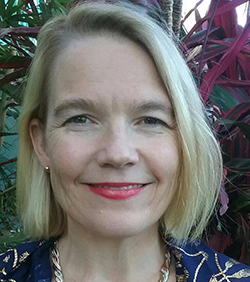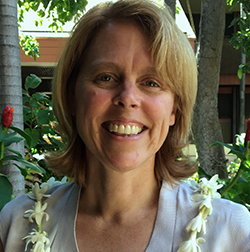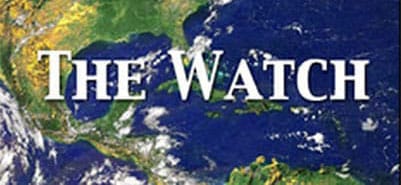Teaching the Science and Rhetoric of Climate Change: Strategies, Pitfalls, and Keeping Your Head Above Water in Turbulent Times
Ten years ago teaching climate change was considered edgy, “greenie”, or subversive. With introduction of the NGSS (the Next Generation Science Standards), it’s become an important conversation in science classes. Disciplines in humanities and social sciences are wondering how they can or should get involved. Student affairs folks are wondering if they should be helping students with “climate anxiety”. With the recent hurricanes and wildfires climate education is a suddenly “hot” topic. It would be exciting if it wasn’t so depressing. It would be interesting if it wasn’t so urgent. For education in particular, it’s a lot of change, happening very quickly in ways we are unevenly prepared for. How do we prepare students for the future they will inherit?
In this webinar Dr. Krista Hiser, a communications professor, and Dr. Wendy Kuntz, an ecology professor from the University of Hawaii address the following questions:
What are students learning in college and how do the NGSS translate and transition to higher education?
What is an effective interdisciplinary course design for teaching climate?
What is the most important climate science concept to teach and why?
How can teachers use climate communication strategies to engage students?
What are institutional barriers to teaching climate change and how can they be addressed?
How can community partners and K-12 schools partner with their colleges and universities to teach climate in context?
Dr. Kiser and Dr. Kuntz will share strategies and lessons learned for the first 30 minutes of the broadcast, then invite questions and engage in discussion for the second half of the session.

Dr. Krista Hiser is Professor of Composition & Rhetoric at Kapiʻolani Community College, where she team teaches a Biology and English learning community course: “Decade Zero: Understanding the Science & Rhetoric of Climate Change.” She has published on community engagement, service-learning, organizational change, post-apocalyptic and cli-fi literature. She is a recipient of the Board of Regents Award for Excellence in Teaching, and the University of Hawai’i President’s Award for Leadership in Sustainability. Currently serving as the University of Hawaii's System Sustainability Curriculum Coordinator, Dr. Hiser’s work is to facilitate change management, coordinate sustainability across the curriculum, and facilitate interdisciplinary dialogue and professional development opportunities for faculty to update and transform their courses.

Dr. Wendy A. Kuntz is Associate Professor of Biology and Ecology at Kapi'olani Community College, and is faculty in the college’s Science, Technology, Engineering and Math (STEM) program. She is active in promoting pedagogies to support STEM education and science communication. Dr. Kuntz is trained as a research scientist with a Ph.D. from the University of Hawaii (Zoology) focused on the breeding biology of one of Hawaii’s iconic forest birds. She is accomplished in designing undergraduate service and research projects that engage students in environmental science by connecting them to their communities. Dr. Kuntz a recipient of the Board of Regents Award for Excellence in Teaching and an active member of the Hawaii Team for the NSF-funded Science Education for New Civic Engagements and Responsibilities program. She team teaches a Biology and English learning community course: “Decade Zero: Understanding the Science & Rhetoric of Climate Change.” Dr. Kuntz developed and serves at the faculty director of the Kai Yama Program, and international collaboration between Kapi‘olani CC and Kansai University, Japan that examines environmental science solutions. At the campus-level, Dr. Kuntz is a leader in integrating sustainability across the curriculum and currently serves as chair of the Faculty Senate Sustainability Committee. Dr. Kuntz has presented at national conferences on course re-design to engage students in science learning and provided training for faculty on ways to incorporate sustainability and climate change into their courses.
Dr. Kuntz has a M.S. (Environmental and Resource Science) from the University of Nevada, Reno and a Ph.D. (Zoology with specialization in Ecology and Evolutionary Conservation Biology) from the University of Hawaii.
Education
Webinar Archives Education ResourcesStewardship
Supporting Stewardship Past Projects Focus Area Resources Applying for Funding
Search Education
Get Social
Last updated: 06/16/24
Author: NOAA
How to cite this article
